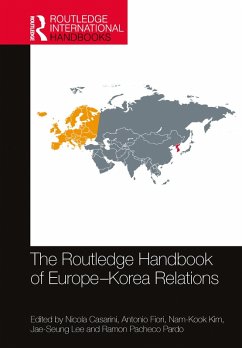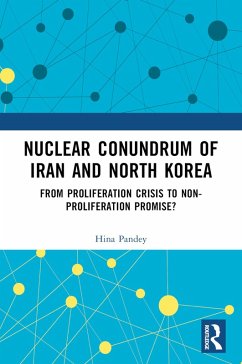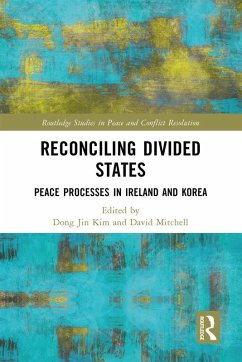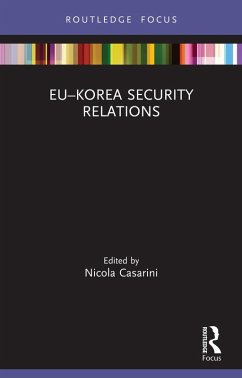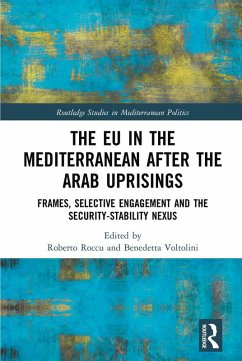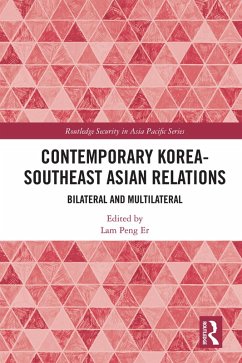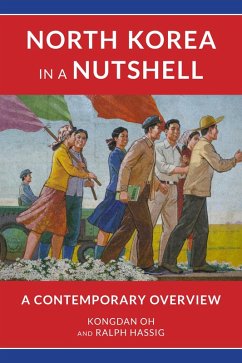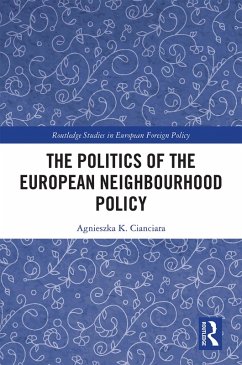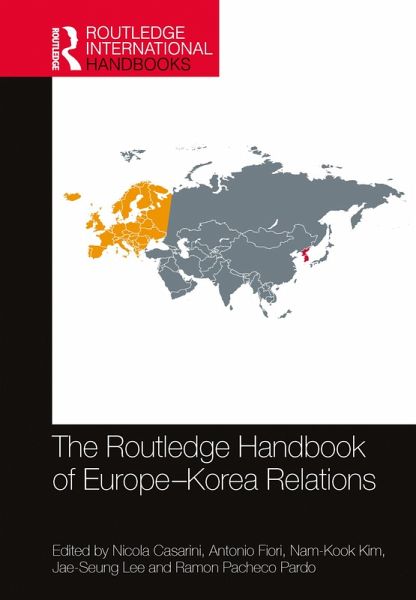
The Routledge Handbook of Europe-Korea Relations (eBook, ePUB)
Versandkostenfrei!
Sofort per Download lieferbar
43,95 €
inkl. MwSt.
Weitere Ausgaben:

PAYBACK Punkte
22 °P sammeln!
The Routledge Handbook of Europe-Korea Relations provides a comprehensive overview of the changing dynamics in relations between Europe and Korea, provided by leading experts in the field.Informed by high-quality academic research and key trilateral data and statistics, this book brings scope, balance, and depth, with wide-ranging coverage examining the history of Europe-Korea relations, the Cold War, contemporary Europe-Korea and Europe-North Korea relations, Europe and inter-Korea relations within the regional context, and relations between European countries and the Korea. Through this appr...
The Routledge Handbook of Europe-Korea Relations provides a comprehensive overview of the changing dynamics in relations between Europe and Korea, provided by leading experts in the field.
Informed by high-quality academic research and key trilateral data and statistics, this book brings scope, balance, and depth, with wide-ranging coverage examining the history of Europe-Korea relations, the Cold War, contemporary Europe-Korea and Europe-North Korea relations, Europe and inter-Korea relations within the regional context, and relations between European countries and the Korea. Through this approach, it increases awareness of the extent and intensity of the multi-faceted and multi-layered connections between the Europe and Korea. Finally, it proposes a way forward for a future relationship between Europe and the Koreas. As a key reference point, for advanced-level students, researchers, policy-makers and journalists producing, and consuming, new material in the area and beyond, it provides an essential understanding of both the historical backdrop to, and the current crisis in, this troubled peninsula.
This Handbook will be an essential reference for scholars, students, researchers and practitioners interested and working in the fields of Asian Politics/ Studies, EU Politics/Studies, European Politics/Studies, Korean Politics/Studies and International Relations.
The Routledge Handbook of Europe-Korea Relations is part of the mini-series Europe in the World Handbooks examining EU-regional relations.
Informed by high-quality academic research and key trilateral data and statistics, this book brings scope, balance, and depth, with wide-ranging coverage examining the history of Europe-Korea relations, the Cold War, contemporary Europe-Korea and Europe-North Korea relations, Europe and inter-Korea relations within the regional context, and relations between European countries and the Korea. Through this approach, it increases awareness of the extent and intensity of the multi-faceted and multi-layered connections between the Europe and Korea. Finally, it proposes a way forward for a future relationship between Europe and the Koreas. As a key reference point, for advanced-level students, researchers, policy-makers and journalists producing, and consuming, new material in the area and beyond, it provides an essential understanding of both the historical backdrop to, and the current crisis in, this troubled peninsula.
This Handbook will be an essential reference for scholars, students, researchers and practitioners interested and working in the fields of Asian Politics/ Studies, EU Politics/Studies, European Politics/Studies, Korean Politics/Studies and International Relations.
The Routledge Handbook of Europe-Korea Relations is part of the mini-series Europe in the World Handbooks examining EU-regional relations.
Dieser Download kann aus rechtlichen Gründen nur mit Rechnungsadresse in A, B, BG, CY, CZ, D, DK, EW, E, FIN, F, GR, HR, H, IRL, I, LT, L, LR, M, NL, PL, P, R, S, SLO, SK ausgeliefert werden.




